|
Why Do Psychological Treatments Work? An Analysis of the Learning Processes That Underlie or Explain Clinical Change [¿Por qué funcionan los tratamientos psicológicos? Un análisis de los procesos de aprendizaje que subyacen o explican el cambio clínico] |
| Saturday, November 26, 2011 |
| 9:00 AM–9:50 AM |
| Sala Manuel de Falla/Manual de Falla Hall |
| Area: PRA; Domain: Applied Behavior Analysis |
| CE Instructor: María Xesús Froján Parga, Ph.D. |
| Chair: Tomas Jesus Carrasco-Gimenez (Universidad de Granada) |
| MARÁA XESÚS FROJÁN PARGA (Universidad Autónoma de Madrid) |
 María Xesús Froján Parga has a Ph.D. in clinical psychology and is a full professor of psychology at the Universidad Autónoma de Madrid (UAM). She has directed the doctoral program Science of Behavior at UAM since 2001. She is also a researcher and a teacher. Her research focuses on the analysis of verbal behavior in typically developed adults during clinical interaction. She has been funded as principal investigator by the Spanish Ministry of Education, Science, and Technology since 1997. Through her research, Dr. Froján attempts to identify the learning processes causing clinical change during psychological therapies. She has published her work in a range of well regarded international journals including Behavior Therapy, Psychotherapy Research, and Clinical Psychology& Psychotherapy. She is also the author of hundreds of presentations at national and international conferences. Dr. Froján is the director of the advanced training program on behavior modification at the Madrid Therapeutic Institute (ITEMA), were she is also active as a clinician. Finally, she is the clinical behavior analysis representative at the board of ABA Spain. Información biográfica (en español) María Xesús Froján Parga has a Ph.D. in clinical psychology and is a full professor of psychology at the Universidad Autónoma de Madrid (UAM). She has directed the doctoral program Science of Behavior at UAM since 2001. She is also a researcher and a teacher. Her research focuses on the analysis of verbal behavior in typically developed adults during clinical interaction. She has been funded as principal investigator by the Spanish Ministry of Education, Science, and Technology since 1997. Through her research, Dr. Froján attempts to identify the learning processes causing clinical change during psychological therapies. She has published her work in a range of well regarded international journals including Behavior Therapy, Psychotherapy Research, and Clinical Psychology& Psychotherapy. She is also the author of hundreds of presentations at national and international conferences. Dr. Froján is the director of the advanced training program on behavior modification at the Madrid Therapeutic Institute (ITEMA), were she is also active as a clinician. Finally, she is the clinical behavior analysis representative at the board of ABA Spain. Información biográfica (en español) |
| Abstract: In spite of the many efforts invested over the years, it remains unclear what are the behavioral processes leading to change in clinical psychology interventions. The research conducted by my team on behavioral processes and clinical change has emphasized five core assumptions: (a) functional analysis is an adequate model of assessment for clinical psychology, (b) verbal behavior during clinical interaction can be analyzed in terms of operant and respondent mechanisms, (c) the clinical situation is a natural context in which problem behavior occurs as it would outside the session, (d) behavioral mechanisms responsible for change can be promoted through the therapeutic relation, (e) private (cognitive) behavior has the same properties as overt behavior and can be studied in the same way. We suggest that psychologists engage (or at least try to engage) a sequence of learning processes (Pavlovian as well as operant) that occasion the occurrence in the client of novel behaviors, more adaptive and less problematical. These learning processes involve largely, but not exclusively, the verbal interaction that takes place during the therapeutic session. This conceptualization of clinical intervention as the channeling of learning processes in a therapeutic context has motivated the contextual therapies that have renewed the landscape of behavioral interventions in the last two decades. [Resumen: A pesar de los grandes esfuerzos invertidos a lo largo de los años, continúa sin aclararse cuáles son los procesos conductuales que llevan al cambio en las intervenciones de psicología clínica. La investigación llevada a cabo por mi equipo sobre los procesos conductuales y el cambio clínico ha puesto el acento en cinco postulados centrales: (a) el análisis funcional es un modelo adecuado evaluación para la psicología clínica, (b) la conducta verbal durante la interacción clínica puede ser analizada en términos de mecanismos operantes y respondientes (c) la situación clínica es un contexto natural en el que los problemas de conducta ocurren tal como lo harían fuera de la sesión, (d) los mecanismos conductuales responsables del cambio pueden ser fomentados a través de la relación terapéutica, (e) la conducta privada (cognitiva) tiene las mismas propiedades que la conducta manifiesta y puede ser estudiada del mismo modo. Sugerimos que los psicólogos conecten (o al menos traten de conectar) una secuencia de procesos de aprendizaje (tanto pavloviano como operante) que provoque la ocurrencia en el cliente de nuevos comportamientos, más adaptativos y menos problemáticos. Estos procesos de aprendizaje implican en gran medida, aunque no exclusivamente, la interacción verbal que tiene lugar durante la sesión terapéutica. Esta conceptualización de la intervención clínica como la canalización de los procesos de aprendizaje en un contexto terapéutico ha motivado las terapias contextuales que han renovado el panorama de las intervenciones conductuales en las dos últimas décadas.] |
|
| |
| |
|
| Experimental Analysis of Behavior-Stimulus Control [Análisis experimental de la conducta: Control de estímulo] |
| Saturday, November 26, 2011 |
| 9:00 AM–10:20 AM |
| Sala B/Room B |
| Area: EAB; Domain: Experimental Analysis |
| Chair: Paula Debert (University of Sao Paulo - Brazil) |
| Discussant: William J. McIlvane (University of Massachusetts Medical School) |
| CE Instructor: Erik Arntzen, Ph.D. |
| Abstract: Topics addressing experimental analysis of behavior-stimulus control |
| |
Equivalence Class Formation and Meaningful Stimuli [Formación de clases de equivalencia y estímulos significativos] |
| ERIK ARNTZEN (Oslo and Akershus University College), Lanny Fields (Queens College), Marie Moksness ( ) |
| Abstract: Stimulus equivalence has been an essential part of behavior analysis for more than40 years. Since then, a number of experiments have focused on how different variables might affect the formation of equivalence classes. One such variable that seems to have a significant importance on the formation of such classes is the use of meaningful stimuli as one stimulus set or more. The current presentation will include results from an experiment with the use of abstract and meaningful stimuli. Participants were trained to form three 5-member classes in a linear series (LS) training structure (A-B-C-D-E) and with a simultaneous protocol. Participants were randomly assigned to five different groups. Participants in Group 1 were trained with abstract stimuli only, while the participants in Group 5 were trained with familiar pictures or meaningful stimuli as C stimuli, and A, B, D, and E as abstract stimuli. Participants in Group 2, 3, and 4 were all trained with abstract stimuli only, but the C stimuli were given simple discrimination training previous to the conditional discrimination training. Hence, the C stimuli were established as discriminative stimuli (SDs) before class formation. For participants in Group 2, the training insured that the C stimuli were discriminated from other stimuli. For the participants in Group 3, the training insured that the C stimuli were discriminated from each other. Finally, in Group 4 the training insured that the C stimuli were discriminated from both other stimuli and each other.[Resumen: la equivalencia de estímulos ha sido una parte esencial del análisis de conducta desde hace más de 40 años. Desde entonces, una serie de experimentos se han centrado en cómo las diferentes variables pueden afectar la formación de clases de equivalencia. Una de esas variables que parece tener una importancia significativa en la formación de estas clases es el uso de estímulos significativos como un solo conjunto de estímulos o más.La presentación actual incluirá resultados de un experimento con el uso de estímulos abstractos y significativos. Los participantes fueron entrenados para formar 3 clases de 5 miembros en una estructura de entrenamiento de series lineales (A-B-C-D-E) y con protocolos simultáneos. Los participantes fueron asignados aleatoriamente a cinco grupos diferentes. Los participantes del Grupo 1 fueron entrenados sólo con estímulos abstractos, mientras que los participantes del Grupo 5 fueron entrenados con fotos familiares o estímulos significativos como estímulos C, y A, B, D y E como estímulos abstractos. Los participantes de los Grupos 2, 3 y 4 fueron todos entrenados con estímulos abstractos solamente, pero los estímulos C recibieron entrenamiento en discriminación sencilla anterior al entrenamiento en discriminación condicionada. Por lo tanto, los estímulos C fueron establecidas como estímulos discriminativos (ED) antes de la formación de clases. Para los participantes del Grupo 2, el entrenamiento aseguró que los estímulos C se discriminaban de otros estímulos. Para los participantes en el Grupo 3, el entrenamiento aseguró que los estímulos C se discriminaban entre sí. Finalmente, en el Grupo 4 el entrenamiento aseguraba que los estímulos C se discriminaban tanto de otros estímulos como entre sí.] |
 Dr. Erik Arntzen received his Ph.D. from University of Oslo, Norway, in February 2000. Arntzen's dissertation focused on variables influencing responding in accord with stimulus equivalence. He also holds a degree in clinical psychology. He is currently Professor in Behavior Analysis at Akershus University College (AUC). His research contributions include both basic and applied behavior analysis, with an emphasis on research in relational stimulus control and verbal behavior. Lately, he has started a research project focusing on remembering functions in patients with dementia. He has also been interested in ethical considerations and core values in the field of behavior analysis. Furthermore, he has research projects within the areas of gambling behavior and consumer behavior. Dr. Arntzen has published papers in a number of different journals including Journal of Applied Behavior Analysis (JABA), The Psychological Record, Behavioral Interventions, European Journal of Behavior Analysis (EJOBA), Experimental of Analysis of Human Behavior Bulletin, Analysis of Gambling Behavior, the Analysis of Verbal Behavior, American Journal of Alzheimer's Disease & Other Dementias, and Psychopharmacology. Dr. Arntzen is the president of the European ABA and he is also the secretary of international affairs of the Norwegian Association for Behavior Analysis. He has presented papers at conferences worldwide. Dr. Arntzen is a founder and an editor of the European Journal of Behavior Analysis. He has served on the editorial board of several journals, including the Journal of Applied Behavior Analysis, The Psychological Record, International Journal of Psychology and Psychological Therapy, and The Behavior Analyst Today. Información biográfica (en español) Dr. Erik Arntzen received his Ph.D. from University of Oslo, Norway, in February 2000. Arntzen's dissertation focused on variables influencing responding in accord with stimulus equivalence. He also holds a degree in clinical psychology. He is currently Professor in Behavior Analysis at Akershus University College (AUC). His research contributions include both basic and applied behavior analysis, with an emphasis on research in relational stimulus control and verbal behavior. Lately, he has started a research project focusing on remembering functions in patients with dementia. He has also been interested in ethical considerations and core values in the field of behavior analysis. Furthermore, he has research projects within the areas of gambling behavior and consumer behavior. Dr. Arntzen has published papers in a number of different journals including Journal of Applied Behavior Analysis (JABA), The Psychological Record, Behavioral Interventions, European Journal of Behavior Analysis (EJOBA), Experimental of Analysis of Human Behavior Bulletin, Analysis of Gambling Behavior, the Analysis of Verbal Behavior, American Journal of Alzheimer's Disease & Other Dementias, and Psychopharmacology. Dr. Arntzen is the president of the European ABA and he is also the secretary of international affairs of the Norwegian Association for Behavior Analysis. He has presented papers at conferences worldwide. Dr. Arntzen is a founder and an editor of the European Journal of Behavior Analysis. He has served on the editorial board of several journals, including the Journal of Applied Behavior Analysis, The Psychological Record, International Journal of Psychology and Psychological Therapy, and The Behavior Analyst Today. Información biográfica (en español) |
| |
Equivalence Relations Established by Positive and Negative Contingencies of Reinforcement [Relaciones de equivalencia establecidas mediante Contingencias Positivas y Negativas de Reforzamiento] |
| GERSON YUKIO TOMANARI (Universidade de São Paulo) |
| Abstract: Conditional relations that lead to equivalence classes are trained under differential reinforcement. In a matching-to-sample task, correct choices are typically under contingencies of positive reinforcement, whereas incorrect choices are under extinction. Would other arrangements also result in successful outcomes? What if correct choices not followed by a reinforcer are negatively reinforced as punishment follows incorrect choices? In three experimental conditions, different pairs of training contingencies were assessed. In Condition 1, participants earned points by responding correctly and lost points by responding incorrectly. In Condition 2, participants had initial points that were kept unaltered by responding correctly but were gradually lost by responding incorrectly. In Condition 3, participants earned a higher number of points by responding correctly and a smaller number of points by responding incorrectly. In general, results showed that participants acquired the conditional discriminations in all three conditions, as well as demonstrated the formation of equivalences classes. However, a closer look at the data suggests that Condition 2, compared to Conditions 1 and 3, may result in a slower—although efficient—acquisition during training. [Resumen: las relaciones condicionales que conducen a las clases de equivalencia se entrenan con reforzamiento diferencial. En una tarea de igualación a la muestra, las elecciones correctas se encuentran generalmente bajo contingencias de reforzamiento positivo, mientras que las elecciones incorrectas se encuentran bajo extinción. ¿Podrían conseguirse los mismos resultados aplicando otros protocolos?, ¿y si las elecciones correctas no seguidas por un reforzador son negativamente reforzadas debido a que el castigo sigue a las elecciones incorrectas? En tres condiciones experimentales, se evaluaron diferentes pares de contingencias de entrenamiento. En la Condición 1, los participantes ganaban puntos por responder correctamente y perdían puntos por responder incorrectamente. En la Condición 2, los participantes tenían puntos iniciales que permanecían inalterados al responder correctamente pero que se perdían progresivamente al responder incorrectamente. En la Condición 3, los participantes ganaban un número más alto de puntos al responder correctamente y un número más pequeño de puntos al responder incorrectamente. En general, los resultados mostraron que los participantes adquirieron las discriminaciones condicionadas en las tres condiciones, así mismo, demostraron la formación de equivalencia de clases. Sin embargo, una mirada más detallada a los datos sugiere que la Condición 2, comparada con las Condiciones 1 y 3, puede dar lugar a una adquisición más lenta—eficiente—durante el entrenamiento.] |
 Dr. Gerson Yukio Tomanari is Full Professor at the University of São Paulo (USP), Brasil, the institution in which he has completed the Bachelor degree in psychology, as well as the master and doctoral degrees in experimental psychology—the latter in collaboration with the University of Massachusetts Medical School-Shriver Center. At USP, Dr. Tomanari coordinates the Laboratory of Experimental Analysis of Behavior and supervises a team of students and post-doc researchers. From a comparative perspective involving humans and non-humans, he investigates the processes of learning, such as observing behavior, as a component to the understanding of attentional and discriminative processes, and the establishment of symbolic repertoires, as a basis for relational thinking and language. Dr. Tomanari is the current editor of Temas em Psicologia, the scientific journal of the Brasilian Psychological Society. He is also the co-director of Publishing and Difusion of Federación Iberoamericana de Asociaciones de Psicología (FIAP). Información biográfica (en español) Dr. Gerson Yukio Tomanari is Full Professor at the University of São Paulo (USP), Brasil, the institution in which he has completed the Bachelor degree in psychology, as well as the master and doctoral degrees in experimental psychology—the latter in collaboration with the University of Massachusetts Medical School-Shriver Center. At USP, Dr. Tomanari coordinates the Laboratory of Experimental Analysis of Behavior and supervises a team of students and post-doc researchers. From a comparative perspective involving humans and non-humans, he investigates the processes of learning, such as observing behavior, as a component to the understanding of attentional and discriminative processes, and the establishment of symbolic repertoires, as a basis for relational thinking and language. Dr. Tomanari is the current editor of Temas em Psicologia, the scientific journal of the Brasilian Psychological Society. He is also the co-director of Publishing and Difusion of Federación Iberoamericana de Asociaciones de Psicología (FIAP). Información biográfica (en español) |
| |
Are Equivalence Classes More Than Laboratory Curiosities?:Exploring the Broader Relevance of Equivalence Relations [¿Son las Clases de Equivalencia algo más que curiosidades de laboratorio?: Explorando la relevancia de las relaciones de equivalencia. ] |
| MANISH VAIDYA (University of North Texas) |
| Abstract: Equivalence relations are defined by the observation that all stimuli in the putative class are substitutable for each other in the context of a match-to-sample (MTS) procedure as indicated by a subject's performance on tests for derived symmetry, transitivity, and symmetrical transitivity. Said another way, equivalence classes have the property that stimuli comprising the class are substitutable for each other in MTS procedures. If this reversal and recombination of trained conditional relations were the only property of equivalence classes, the phenomenon would be a 'laboratory curiosity' and of limited interest as an analogue of more complex performances in the world outside the laboratory. This paper will offer a selective review of the relevant archival literature and present data from several recently-conducted studies in our laboratory. It will be argued that stimulus equivalence classes, in fact, do have properties other than the ones that define their existence. These data suggest that the answer to the question posed in the title is 'yes' and that equivalence relations can serve as useful laboratory-generated analogues of complex behavior in the everyday world. Finally, it will be suggested that emphasizing the non-defining properties of equivalence classes may be helpful in drawing the interest of researchers interested in complex and generative performances from a non behavior-analytic perspective. [Resumen: las relaciones de equivalencia se definen por la observación de que todos los estímulos en la clase supuesta son sustituibles entre sí en el contexto de un procedimiento de igualación a la muestra tal como indica el desempeño de un sujeto en pruebas de simetría derivada, transitividad y transitividad simétrica. Dicho de otra forma, las clases de equivalencia tienen la propiedad de que los estímulos que comprenden son sustituibles entre sí en los procedimientos de igualación a la muestra Si esta inversión y recombinación de las relaciones condicionales entrenadas fuera la única propiedad de las clases de equivalencia, el fenómeno sería una "curiosidad de laboratorio” y de interés limitado como análogo de las actuaciones más complejas en el mundo fuera del laboratorio. Éste artículo ofrecerá una revisión selectiva de la literatura relevante registrada y de los datos actuales de varios estudios llevados a cabo recientemente en nuestro laboratorio. Se argumentará que las clases de equivalencia de estímulo, de hecho, tienen propiedades distintas de las que definen su existencia. Estos datos sugieren que la respuesta a la cuestión planteada en el título es “sí” y que las relaciones de equivalencia pueden servir como útiles análogos generados en el laboratorio para la conducta compleja en el mundo cotidiano. Finalmente, se sugerirá que enfatizar las propiedades que no definen las clases de equivalencia puede ser útil para definir los intereses de los investigadores interesados ​​en las actuaciones complejas y generativas desde una perspectiva no analítico-conductual.] |
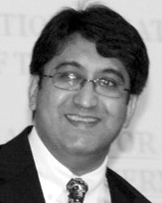 Manish Vaidya earned his bachelor and master's degrees at the University of North Texas and his Ph.D. at the University of Florida. Following a brief post-doctoral fellowship at the University of Kansas, he returned to the University of North Texas where he is now an associate professor in the Department of Behavior Analysis. Manish has been interested in issues related to stimulus control since nearly the beginning of his graduate training. His current research interests involve attending, short-term remembering and the development and maintenance of equivalence relations in pigeons and people. He currently serves on the board of editors of the Journal of Experimental Analysis of Behavior and The Behavior Analyst. Manish Vaidya earned his bachelor and master's degrees at the University of North Texas and his Ph.D. at the University of Florida. Following a brief post-doctoral fellowship at the University of Kansas, he returned to the University of North Texas where he is now an associate professor in the Department of Behavior Analysis. Manish has been interested in issues related to stimulus control since nearly the beginning of his graduate training. His current research interests involve attending, short-term remembering and the development and maintenance of equivalence relations in pigeons and people. He currently serves on the board of editors of the Journal of Experimental Analysis of Behavior and The Behavior Analyst.
Información biográfica (en español) |
|
| |
| |
|
Behavior Modification, Behavior Therapy, and Applied Behavior Analysis: The Differences [Modificación de conducta, terapia de conducta y análisis aplicado de la conducta, ¿en qué se diferencian?] |
| Saturday, November 26, 2011 |
| 10:00 AM–10:50 AM |
| Sala Manuel de Falla/Manual de Falla Hall |
| Area: TPC; Domain: Theory |
| CE Instructor: Joseph J. Pear, Ph.D. |
| Chair: Javier Virués (University of Manitoba) |
| JOSEPH J. PEAR (University of Manitoba) |
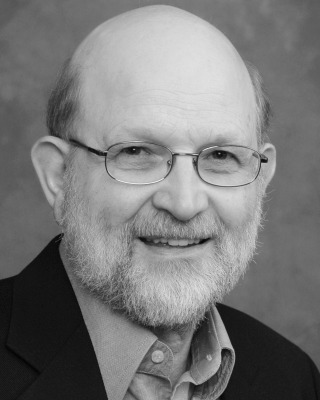 Joseph J. Pear, Professor of Psychology at the University of Manitoba, received a BS degree from the University of Maryland and MA and Ph.D. degrees from The Ohio State University. A fellow of Division 6 (Behavioral Neuroscience and Comparative Psychology) and Division 25 (Behavior Analysis) of the American Psychological Association, Pear has done both basic and applied research. His early applied work focused on children with developmental disabilities at the St. Amant Centre where he founded the Behaviour Modification Unit (now the Psychology Department). In 2009, he received an award for Outstanding Contribution to Behaviour Analysis in Manitoba from the Manitoba Association for Behaviour Analysis. Currently, he is researching knowledge transfer with members of the St. Amant Psychology Department and with researchers at Brock University and New Haven Learning Centre in Ontario. Pear also developed an instructional program based on the Keller Plan called Computer-Aided Personal System of Instruction (CAPSI). CAPSI is used to teach courses at the University of Manitoba and at other universities in Canada and the United States. In addition, it is a tool that Pear and his graduate students use to research the teaching and learning dimensions of university education. For his work in this area, Pear has received two honors: an award for Innovative Excellence in Teaching, Learning, and Technology at the Thirteenth International Conference on Teaching and Learning and the Fred S. Keller Behavioral Education Award for Distinguished Contributions to Education by Division 25 of the American Psychological Association. Pear has done basic research with rats and pigeons. Currently he is conducting research with fish using a tracking system he developed. His best-known basic research deals with behavioral contrast, shaping, and the spatio-temporal analysis of behavior. In addition he has done work in the mathematical analysis of behavior. In addition to co-authoring Behavior Modification: What It Is and How to Do It with Garry Martin, Pear has written two other books: The Science of Learning and A Historical and Contemporary Look at Psychological Systems. He has also written numerous basic and applied research articles. Most recently, he has written four encyclopedia articles: "Psychological Systems" in The Corsini Encyclopedia of Psychology (Fourth Edition) and "Physiological Homeostasis and Learning," "Behavioral Approaches to Instruction", and (with Garry Martin) "Behavior Modification, Behavior Therapy, Applied Behavior Analysis, and Learning" in the Encyclopedia of the Sciences of Learning. Información biográfica (en español) Joseph J. Pear, Professor of Psychology at the University of Manitoba, received a BS degree from the University of Maryland and MA and Ph.D. degrees from The Ohio State University. A fellow of Division 6 (Behavioral Neuroscience and Comparative Psychology) and Division 25 (Behavior Analysis) of the American Psychological Association, Pear has done both basic and applied research. His early applied work focused on children with developmental disabilities at the St. Amant Centre where he founded the Behaviour Modification Unit (now the Psychology Department). In 2009, he received an award for Outstanding Contribution to Behaviour Analysis in Manitoba from the Manitoba Association for Behaviour Analysis. Currently, he is researching knowledge transfer with members of the St. Amant Psychology Department and with researchers at Brock University and New Haven Learning Centre in Ontario. Pear also developed an instructional program based on the Keller Plan called Computer-Aided Personal System of Instruction (CAPSI). CAPSI is used to teach courses at the University of Manitoba and at other universities in Canada and the United States. In addition, it is a tool that Pear and his graduate students use to research the teaching and learning dimensions of university education. For his work in this area, Pear has received two honors: an award for Innovative Excellence in Teaching, Learning, and Technology at the Thirteenth International Conference on Teaching and Learning and the Fred S. Keller Behavioral Education Award for Distinguished Contributions to Education by Division 25 of the American Psychological Association. Pear has done basic research with rats and pigeons. Currently he is conducting research with fish using a tracking system he developed. His best-known basic research deals with behavioral contrast, shaping, and the spatio-temporal analysis of behavior. In addition he has done work in the mathematical analysis of behavior. In addition to co-authoring Behavior Modification: What It Is and How to Do It with Garry Martin, Pear has written two other books: The Science of Learning and A Historical and Contemporary Look at Psychological Systems. He has also written numerous basic and applied research articles. Most recently, he has written four encyclopedia articles: "Psychological Systems" in The Corsini Encyclopedia of Psychology (Fourth Edition) and "Physiological Homeostasis and Learning," "Behavioral Approaches to Instruction", and (with Garry Martin) "Behavior Modification, Behavior Therapy, Applied Behavior Analysis, and Learning" in the Encyclopedia of the Sciences of Learning. Información biográfica (en español) |
| Abstract: The terms behavior modification, behavior therapy, and behavior analysis are closely related, but the exact relations between them have not been clearly articulated. This talk starts by looking at the historical development of these terms. It concludes with the view, based on the historical analysis presented, that behavior modification properly refers to all applications of learning principles to practical problems, behavior therapy to the clinical applications of behavior theory, and applied behavior analysis to demonstrations of the effects of behavioral procedures on the practical problems of individuals. [Resumen: los términos Modificación de Conducta, Terapia de Conducta, y Análisis de Conducta están íntimamente relacionados, pero la relación exacta entre ellos no se ha articulado con claridad. Esta ponencia comienza con una mirada al desarrollo histórico de estos términos concluyendo con una visión apoyada el análisis histórico que se presentará y que sugiere que el término Modificación de Conducta se refiere correctamente a todas las aplicaciones de los principios del aprendizaje a problemas prácticos, el término Terapia de Conducta se referiría a las aplicaciones clínicas de la teoría de la conducta y el término Análisis Aplicado de la Conducta a las demostraciones de los efectos de los procedimientos conductuales en los problemas prácticos de los individuos.] |
|
| |
| |
|
Therapeutic Change Viewed Through Behavior Analytic Lenses [El cambio terapéutico visto a través de la óptica analítico conductual] |
| Saturday, November 26, 2011 |
| 11:00 AM–11:50 AM |
| Sala Manuel de Falla/Manual de Falla Hall |
| Area: CBM; Domain: Theory |
| CE Instructor: Kurt Salzinger, Ph.D. |
| Chair: Raymond C. Pitts (University of North Carolina Wilmington) |
| KURT SALZINGER (Hofstra University) |
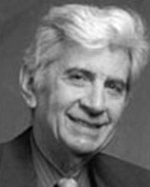 Kurt Salzinger, Ph.D. is Senior Scholar in Residence at Hofstra University in Hempstead, N.Y. since January 2003. He was executive director for science at the American Psychological Association 2001 to 2003. He's been president of the New York Academy of Sciences, has served on the board of directors of the American Psychological Association (APA), and been president of Divisions 1 (General Psychology) and 25 (Behavior Analysis), and of the American Association of Applied and Preventive Psychology. He also served as the first chair of the board of the Cambridge Center 1986-1988, subsequently as a member until 1991 and again a member of the board since 2004. He is author or editor of 12 books and over 120 articles and book chapters. The most recent book he edited with M. R. Serper in 2009: Behavioral Mechanisms and Psychopathology. Washington, D.C.: American Psychological Association. He has varied research interests, including behavior analysis applied to human beings, dogs, rats, and goldfish; schizophrenia; verbal behavior of children and adults; history of psychology. He has both given grants (when a program officer at the National Science Foundation) and received them (when professor of psychology at Hofstra University and Polytechnic University of New York and Principal Research Scientist at the New York State Psychiatric Institute) for his own research. He received the Sustained Superior Performance Award from the National Science Foundation (NSF), the Stratton Award from the American Psychopathological Association, and the Most Meritorious Article Award from the Journal of Behavior Therapy and Experimental Psychiatry. In 2002 he was presidential scholar for the Association for Behavior Analysis International. 2009-2010 he was elected president of the Eastern Psychological Association. Información biográfica (en español) Kurt Salzinger, Ph.D. is Senior Scholar in Residence at Hofstra University in Hempstead, N.Y. since January 2003. He was executive director for science at the American Psychological Association 2001 to 2003. He's been president of the New York Academy of Sciences, has served on the board of directors of the American Psychological Association (APA), and been president of Divisions 1 (General Psychology) and 25 (Behavior Analysis), and of the American Association of Applied and Preventive Psychology. He also served as the first chair of the board of the Cambridge Center 1986-1988, subsequently as a member until 1991 and again a member of the board since 2004. He is author or editor of 12 books and over 120 articles and book chapters. The most recent book he edited with M. R. Serper in 2009: Behavioral Mechanisms and Psychopathology. Washington, D.C.: American Psychological Association. He has varied research interests, including behavior analysis applied to human beings, dogs, rats, and goldfish; schizophrenia; verbal behavior of children and adults; history of psychology. He has both given grants (when a program officer at the National Science Foundation) and received them (when professor of psychology at Hofstra University and Polytechnic University of New York and Principal Research Scientist at the New York State Psychiatric Institute) for his own research. He received the Sustained Superior Performance Award from the National Science Foundation (NSF), the Stratton Award from the American Psychopathological Association, and the Most Meritorious Article Award from the Journal of Behavior Therapy and Experimental Psychiatry. In 2002 he was presidential scholar for the Association for Behavior Analysis International. 2009-2010 he was elected president of the Eastern Psychological Association. Información biográfica (en español) |
| Abstract: I will apply behavior analysis to various psychotherapeutic approaches to determine how each of them produces change or fails to do so. I will also explore the resultant changes in verbal behavior during the session and how they might induce changes in verbal and nonverbal behavior outside the therapeutic session. In essence, I will explore the extent to which each form of therapy succeeds in producing the changes it undertakes to produce, and perhaps most important, what the differences and what the similarities of the various forms of therapy are when exposed to this kind of analysis. Thus, I will raise such questions as, what are the behavioral roles of interpretation in psychodynamic therapy? Is an interpretation a reinforcer or a discriminative stimulus? Does it aid in doing a behavioral analysis of the patient's situation? What behavioral changes take place when patients engage in role playing? Do they respond to novel discriminative stimuli? Are they influenced by reinforcers whose effect they do not otherwise sense? Does cognitive debate elucidation result in a nonverbal behavioral change or merely in more verbal behavior? Under what conditions does a change in verbal behavior result in a nonverbal behavior change?[Resumen: Aplicaré el análisis de conducta a varios marcos psicoterapéuticos y exploraré los cambios resultantes en la conducta verbal durante la sesión y cómo éstos pueden inducir cambios en la conducta verbal y no verbal dentro y fuera de la sesión terapéutica. En esencia, exploraré en qué medida cada tipo de terapia logra producir los cambios que pretende y cuáles son las diferencias y similitudes de los varios tipos de terapia cuando se analizan de esta forma. Por ejemplo, me plantearé cuestiones como, ¿cuál es la función conductual de la interpretación en la terapia psicodinámica? ¿funciona como reforzador o como discriminativo? ¿ayuda a realizar un análisis conductual de la situación del paciente? ¿qué cambios conductuales tienen lugar cuando los pacientes realizan role play? ¿responden a estímulos discriminativos nuevos? ¿el proceso de debate cognitivo genera un cambio conductual no verbal o únicamente un cambio en la conducta verbal? ¿bajo qué condiciones un cambio en la conducta verbal resulta en un cambio conductual no verbal?] |
|
| |
| |
|
On Rediscovering the Power of Behavior Analysis [Sobre el re-descubrimiento del análisis de conducta] |
| Saturday, November 26, 2011 |
| 12:00 PM–12:50 PM |
| Sala Manuel de Falla/Manual de Falla Hall |
| Area: TPC; Domain: Theory |
| CE Instructor: Charles Fergus Lowe, Ph.D. |
| Chair: Luis Antonio Perez-Gonzalez (Universidad de Oviedo) |
| CHARLES FERGUS LOWE (Bangor University) |
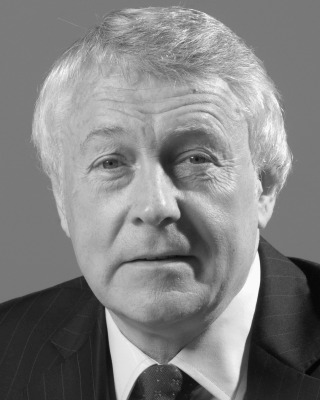 A graduate of Trinity College, Dublin, Fergus Lowe is professor of psychology and deputy vice-chancellor at Bangor University, Wales. His early research was concerned with temporal control of responding on schedules of reinforcement, and later focussed on inter-species similarities and differences and, in particular, the transformative role of verbal behavior. This led in turn to research on the development of operant behavior in children and studies of adult human behavior in clinical and non-clinical populations. With Dr. Pauline Horne, he has produced a new theoretical account of early language development, specifically 'naming,' and its role in bringing about apparently emergent relations. In recent years he has developed, with Dr. Horne, a programme that is very effective in bringing about large and longlasting changes in children's diets. This award-winning programme, The Food Dudes, is being introduced to all primary schools nationally by the Irish Government, to regions of the UK, and is attracting interest in several other countries. Professor Lowe led the Experimental Analysis of Behaviour Group in the UK for many years. As one passionate about the advancement of behavior analysis in Europe, he helped to initiate the first European-wide meetings of behavior analysts and was the first chair of the European Association for Behaviour Analysis. He has recently led the development of a major Centre for Arts and Innovation at Bangor (www.pontio.co.uk) which will include the establishment of the first Centre for Behaviour Change in Europe. Información biográfica (en español) A graduate of Trinity College, Dublin, Fergus Lowe is professor of psychology and deputy vice-chancellor at Bangor University, Wales. His early research was concerned with temporal control of responding on schedules of reinforcement, and later focussed on inter-species similarities and differences and, in particular, the transformative role of verbal behavior. This led in turn to research on the development of operant behavior in children and studies of adult human behavior in clinical and non-clinical populations. With Dr. Pauline Horne, he has produced a new theoretical account of early language development, specifically 'naming,' and its role in bringing about apparently emergent relations. In recent years he has developed, with Dr. Horne, a programme that is very effective in bringing about large and longlasting changes in children's diets. This award-winning programme, The Food Dudes, is being introduced to all primary schools nationally by the Irish Government, to regions of the UK, and is attracting interest in several other countries. Professor Lowe led the Experimental Analysis of Behaviour Group in the UK for many years. As one passionate about the advancement of behavior analysis in Europe, he helped to initiate the first European-wide meetings of behavior analysts and was the first chair of the European Association for Behaviour Analysis. He has recently led the development of a major Centre for Arts and Innovation at Bangor (www.pontio.co.uk) which will include the establishment of the first Centre for Behaviour Change in Europe. Información biográfica (en español) |
| Abstract: Governments worldwide are increasingly interested in ways to keep their populations physically and mentally healthy, and it is clear that many illnesses and problems that beset modern societies—obesity, diabetes, cardiovascular disease, cancer, alcoholism, drug abuse, anti-social behaviour, depression, dementia, to name but a few—can be prevented, or alleviated, by changes in people's lifestyles. Unchecked, these disorders present a major financial drain on governments and taxpayers, and misery for those affected and their families. There is also a growing recognition that, in order to save the planet, we all must change our behaviour to reduce carbon emissions and protect the environment. But the attempts of governments and other agencies to effect such change, mainly through regulation and exhortation, usually prove of limited success or fail altogether. These failures have led recently to calls for a more serious focus on behaviour change, an understanding of the factors responsible for change, and evidence-based behaviour change interventions. Much of the impetus for this new approach has come from the book Nudge and from academics such as Richard Thaler and Robert Cialdini, who are not behaviour analysts. This paper will discuss why behaviour analysts have not, so far, played their full part in this momentous endeavour to transform society and how they could now do so to great effect. [Resumen: Los gobiernos del mundo están cada vez más interesados en mantener la salud física y mental de sus poblaciones y es evidente que muchas de las enfermedades y problemas de comportamiento que acosan a las sociedades modernas como la obesidad, la diabetes, las enfermedades cardiovasculares, el cáncer, el alcoholismo, el abuso de drogas, el comportamiento anti-social , la depresión, o la demencia, por nombrar sólo algunos casos, se pueden prevenir o aliviar, induciendo cambios en el estilos de vida de las personas. Estos trastornos son un agujero financiero continuo para los gobiernos y los contribuyentes, y malogran la vida de los afectados y sus familias. También hay un creciente reconocimiento de que, con el fin de salvar el planeta, todos debemos cambiar nuestro comportamiento para reducir las emisiones de CO2 y proteger el medio ambiente. No obstante, los intentos de los gobiernos y otros organismos para llevar a cabo estos cambio, principalmente a través de regulaciones legales y de medios coercitivos, por lo general demuestran un éxito limitado si no un completo fracaso. Ello ha inducido a que recientemente se alcen distintas voces solicitando un enfoque más serio sobre el cambio de comportamiento, que permita comprender los factores responsables del cambio, y las intervenciones basadas en la evidencia que pueden producirlo. Gran parte del impulso de este nuevo enfoque ha venido de la mano del libro Nudge [El empujoncito] y de académicos como Richard Thaler y Robert Cialdini, que no son analistas de conducta. Durante esta presentación analizaremos por qué los analistas del comportamiento no han jugado, hasta ahora, un papel en la importante tarea de transformar la sociedad y cómo podrían lograrlo ahora causando un gran efecto.] |
|
| |
| |
|
Dream Chasers [Perseguidores de sueños] |
| Saturday, November 26, 2011 |
| 4:30 PM–5:20 PM |
| Sala Manuel de Falla/Manual de Falla Hall |
| Area: PRA; Domain: Theory |
| CE Instructor: Richard W. Malott, Ph.D. |
| Chair: Tomas Jesus Carrasco-Gimenez (Universidad de Granada) |
| RICHARD W. MALOTT (Western Michigan University) |
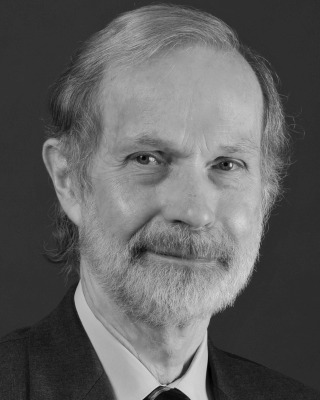 Richard Malott, Ph.D. (DickMalott@DickMalott.com) teaches behavior analysis at Western Michigan University, where he works with students interested in becoming practitioners, rather than researchers. He trains students to work with autistic children and to apply behavior systems analysis and organizational behavior management to human-services settings. He concentrates on training BA and MA students as well as Ph.D. students. Every summer, he runs the Behavioral Boot Camp, an intense 15-class-hour-per week, 7.5 week, graduate-level, behavior-analysis seminar for students from WMU and around the globe. Originally, he taught an intro behavior-analysis course to 1,000 students per semester, who produced 1,000 lever-pressing rats per year. Now, his students only condition 230 rats per year, but they also do 130 self-management projects and provide 13,500 hours of training to autistic children each year. To further those efforts, in 2008 he founded the Kalamazoo Autism Center. He also coauthored Principles of Behavior (the textbook previously known as Elementary Principles of Behavior.) Since 1980, he has been working on a textbook called I'll Stop Procrastinating When I Get Around to It. He has presented in 14 countries and has received two Fulbright Senior Scholar Awards. In 2002, he also received ABA's Award for Public Service in Behavior Analysis. And in 2010, he was elected president-elect of ABAI. For more information, please see http://DickMalott.com. Información biográfica (en español) Richard Malott, Ph.D. (DickMalott@DickMalott.com) teaches behavior analysis at Western Michigan University, where he works with students interested in becoming practitioners, rather than researchers. He trains students to work with autistic children and to apply behavior systems analysis and organizational behavior management to human-services settings. He concentrates on training BA and MA students as well as Ph.D. students. Every summer, he runs the Behavioral Boot Camp, an intense 15-class-hour-per week, 7.5 week, graduate-level, behavior-analysis seminar for students from WMU and around the globe. Originally, he taught an intro behavior-analysis course to 1,000 students per semester, who produced 1,000 lever-pressing rats per year. Now, his students only condition 230 rats per year, but they also do 130 self-management projects and provide 13,500 hours of training to autistic children each year. To further those efforts, in 2008 he founded the Kalamazoo Autism Center. He also coauthored Principles of Behavior (the textbook previously known as Elementary Principles of Behavior.) Since 1980, he has been working on a textbook called I'll Stop Procrastinating When I Get Around to It. He has presented in 14 countries and has received two Fulbright Senior Scholar Awards. In 2002, he also received ABA's Award for Public Service in Behavior Analysis. And in 2010, he was elected president-elect of ABAI. For more information, please see http://DickMalott.com. Información biográfica (en español) |
| Abstract: Here's one of my favorite things about our field of behavior analysis: it's filled with dream chasers—delightfully delusional behavior analysts devoting their lives to chasing the behavior analytic dream, to saving the world with behavior analysis, or at least some small chunk of the world, to helping all kids on the spectrum learn to talk, to disseminating behavior-analytic, computer-based instruction throughout public education, to ending global warming, to infusing their undergrad students with a love of behavior analysis, and also to understanding what makes us complex organisms and complex social systems tick, without forgetting our Skinner-box, our experimental roots; in other words, to finding out why the pigeon pecks the key and what that has to do with you and me. You name it, and there's a small or large group of people using behavior analysis to achieve these illusive goals, working toward the well being of humanity. I'd like to share a few of my heroes with you. [Resumen: Una de los aspectos que más me gustan de nuestro campo, el análisis de conducta, es que está lleno de perseguidores de sueños, analistas de conducta deliciosamente delirantes que dedican su vida a perseguir el sueño analítico conductual para salvar al mundo con el análisis de conducta, o al menos un trocito del mundo. Personas que ayudan a niños a aprender a hablar, a la difusión de la enseñanza del análisis de conducta, a la enseñanza pública informatizada, a reducir el calentamiento global, a promover el afecto por el análisis de conducta. Analistas de conducta dedicados también a entender a los organismos complejos y los sistemas sociales complejos, sin olvidar nuestra caja de Skinner, nuestras raíces experimentales. Es decir, dedicados a averiguar por qué la paloma picotea la tecla y qué tiene eso que ver contigo y conmigo. Hay un grupo de personas más pequeño o más grande que utilizan el análisis de conducta para alcanzar estas metas, y que trabajan para el bienestar de la humanidad. Me gustaría compartir algunos de mis ídolos con vosotros.] |
|
| |
| |
|
| Autism, Verbal Behavior, and Behavior Analysis [Autismo, conducta verbal y análisis de conducta] |
| Saturday, November 26, 2011 |
| 4:30 PM–5:50 PM |
| Sala B/Room B |
| Area: AUT/VBC; Domain: Applied Behavior Analysis |
| Chair: Joshua K. Pritchard (Florida Institute of Technology) |
| Discussant: Martha Hübner (USP Sao Paulo, Brazil) |
| CE Instructor: Caio F. Miguel, Ph.D. |
| Abstract: Topics addressing autism, verbal behavior, and behavior analysis. |
| |
The Role of Naming in Stimulus Categorization by Children With Autism [El papel del naming en la categorización de estímulos en niños con autismo] |
| CAIO F. MIGUEL (California State University, Sacramento) |
| Abstract: Naming is a higher order class of behavior that involves the learning of a bi-directional relation between speaking and listening responses. Previous research has suggested that novel categorization as measured via arbitrary visual-visual matching to sample tasks is dependent upon naming. This presentation will describe three single-subject design studies conducted with children with autism. In these studies, participants were taught to either tact (speak) or receptively discriminate (listen) unfamiliar pictures based on their category names and assessed on the emergence of naming and categorization. Results suggest that both training conditions led to naming and categorization, and that full naming may be an important pre-requisite for verbally mediated categorization performance. Implications for clinical practice will be discussed. [Resumen: El "naming" es una operante de orden superior que implica el aprendizaje de una relación bi-direccional entre hablar y escuchar respuestas. Las investigaciones sugieren que la categorización de estímulos novedosos medida mediante pruebas de igualación arbitraria a la muestra usando estímulos visuales depende del repertorio de naming. Esta presentación describirá tres estudios de caso único realizados con niños con autismo. En estos estudios, se enseñó a los participantes a tactar (hablar) o discriminar receptivamente (escuchar) imágenes no familiares según sus nombres de categoría y se observó si emergía el repertorio de naming y la categorización. Los resultados sugieren que ambas condiciones de entrenamiento facilitaron la adquisición de naming y que el naming completo es una habilidad pre-requisita para la categorización mediada verbalmente. Se describirán las implicaciones prácticas de estos hallazgos.] |
 Dr. Caio Miguel received his Ph.D. in psychology from Western Michigan University under the co-advisement of Dr. James Carr and Dr. Jack Michael. Currently, Dr. Miguel is an assistant professor of psychology at California State University, Sacramento. He is also a Board Certified Behavior Analyst. Dr. Miguel is the past-editor (2009-2011) and current associate editor of The Analysis of Verbal Behavior. He currently serves on the editorial board of the Journal of the Experimental Analysis of Behavior, Journal of Applied Behavior Analysis, The Behavior Analyst, The Psychological Record, and The Brazilian Journal of Behavior Analysis. Dr. Miguel has given over 80 professional presentations about verbal behavior in North America, South America, and Europe, and has had his work published in peer-reviewed journals and edited books in English, Portuguese, and Spanish. For more information, visit www.caiomiguel.org. Información biográfica (en español) Dr. Caio Miguel received his Ph.D. in psychology from Western Michigan University under the co-advisement of Dr. James Carr and Dr. Jack Michael. Currently, Dr. Miguel is an assistant professor of psychology at California State University, Sacramento. He is also a Board Certified Behavior Analyst. Dr. Miguel is the past-editor (2009-2011) and current associate editor of The Analysis of Verbal Behavior. He currently serves on the editorial board of the Journal of the Experimental Analysis of Behavior, Journal of Applied Behavior Analysis, The Behavior Analyst, The Psychological Record, and The Brazilian Journal of Behavior Analysis. Dr. Miguel has given over 80 professional presentations about verbal behavior in North America, South America, and Europe, and has had his work published in peer-reviewed journals and edited books in English, Portuguese, and Spanish. For more information, visit www.caiomiguel.org. Información biográfica (en español) |
| |
Current Research on the Development and Advancement of Verbal Capabilities in Children With and Without Developmental Delays [Investigaciones actuales sobre el desarrollo y avance de las capacidades verbales en niños con y sin retrasos en el desarrollo] |
| NIRVANA PISTOLJEVIC (CABAS® and Teachers College, Columbia University) |
| Abstract: The development of language and communication skills is of primary importance to many parents, educators, and researchers. In the past several years, verbal behavior development theory has spurred a large amount of research involving the implementation of interventions or protocols designed to induce missing verbal developmental capabilities. Once the foundational capabilities are present, we can build up, induce, and expand complex communication in children, starting with inducing and improving listener and speaker repertoires and then, inducing important verbal capabilities, such as Naming and observational learning. This lecture will present an overview of these scientific-based tactics for advancing children’s verbal behavior development from infancy to complete independence. These science driven educational “best practices” are employed every day across general, inclusion, early intervention, and special education CABAS® classrooms throughout the USA, England, Italy, Spain, and now Bosnia, to teach children with and without developmental delays ranging form pre-listeners and pre-speakers through readers, writers, and self-editor levels of verbal behavior. [Resumen: El desarrollo de habilidades de lenguaje y la comunicación es de vital importancia para muchos padres, educadores e investigadores. En los últimos años, la teoría del desarrollo del comportamiento verbal ha provocado gran cantidad de investigación sobre intervenciones y protocolos para inducir capacidades verbales que pueden estar ausentes durante el desarrollo. Una vez que las capacidades fundamentales están presentes, es posible producir comunicación compleja en niños. Para ello comenzamos expandiendo los repertorios de escucha y hablante para a continuación inducir capacidades verbales importantes tales como el naming o el aprendizaje observacional. Esta conferencia presentará una visión general de estas tácticas científicas para promover el desarrollo de la conducta verbal en la infancia facilitando la independencia completa. Estas prácticas educativas con base científica se emplean cada día en las escuelas CABAS®, tanto en las aulas de educación general, como en las de inclusión, intervención temprana, o educación especial. Las escuelas CABAS® se encuentran en EE.UU., Inglaterra, Italia, España y Bosnia. El modelo CABAS® puede emplearse para enseñar a niños con o sin retrasos en el desarrollo que se encuentran desde un nivel de pre-escucha y pre-hablante hasta un nivel de escritor, lector y auto-editor.] |
 Nirvana Pistoljevic received her Ph.D. in applied behavior analysis from Columbia University Teachers College and worked as the assistant director of The Fred S. Keller School, a private research based preschool (non-profit organization), training site for Columbia University graduate students. The Fred S. Keller School serves students ages 18-months through 5-years-old with and without developmental delays and implements the Comprehensive Application of Behavior Analysis to Schooling (CABAS®) model of education. The CABAS® model employs behavioral tactics and principles to the measurement and analysis of student learning. She is also an adjunct assistant professor of education and psychology in the programs for Teaching as Applied Behavior Analysis in the Department of Health and Behavior Studies at Teachers College. Dr. Pistoljevic has achieved the ranks of senior behavior analyst and assistant research scientist through the CABAS® system and she is a published researcher in the field of education, behavior science, and language development. Her current research interests include early verbal development, such as: (a) Naming (incidental language acquisition capability); (b) increasing spontaneous speech in children with autism and related developmental delays; (c) acquisition of listener behavior, observational learning and success in inclusion. Also, Dr. Pistoljevic is committed in helping children with autism and other developmental delays in Bosnia and Herzegovina. This is where she is spending this year contributing to changing educational practices and outcomes for children and their families by helping parents, educators, and other professionals, learn and implement newest evidence based practices in Sarajevo schools. She has spearheaded a Project “CABAS® Mjedenica” starting the first classrooms for children with autism and other developmental delays in Sarajevo, based on Teaching as Applied Behavior Analysis. She is currently training a staff of 30 professionals, providing education for 80 children, lecturing as a visiting professor at University of Sarajevo, as faculty of pedagogy, conducting research and writing. Información biográfica (en español) Nirvana Pistoljevic received her Ph.D. in applied behavior analysis from Columbia University Teachers College and worked as the assistant director of The Fred S. Keller School, a private research based preschool (non-profit organization), training site for Columbia University graduate students. The Fred S. Keller School serves students ages 18-months through 5-years-old with and without developmental delays and implements the Comprehensive Application of Behavior Analysis to Schooling (CABAS®) model of education. The CABAS® model employs behavioral tactics and principles to the measurement and analysis of student learning. She is also an adjunct assistant professor of education and psychology in the programs for Teaching as Applied Behavior Analysis in the Department of Health and Behavior Studies at Teachers College. Dr. Pistoljevic has achieved the ranks of senior behavior analyst and assistant research scientist through the CABAS® system and she is a published researcher in the field of education, behavior science, and language development. Her current research interests include early verbal development, such as: (a) Naming (incidental language acquisition capability); (b) increasing spontaneous speech in children with autism and related developmental delays; (c) acquisition of listener behavior, observational learning and success in inclusion. Also, Dr. Pistoljevic is committed in helping children with autism and other developmental delays in Bosnia and Herzegovina. This is where she is spending this year contributing to changing educational practices and outcomes for children and their families by helping parents, educators, and other professionals, learn and implement newest evidence based practices in Sarajevo schools. She has spearheaded a Project “CABAS® Mjedenica” starting the first classrooms for children with autism and other developmental delays in Sarajevo, based on Teaching as Applied Behavior Analysis. She is currently training a staff of 30 professionals, providing education for 80 children, lecturing as a visiting professor at University of Sarajevo, as faculty of pedagogy, conducting research and writing. Información biográfica (en español) |
| |
Implementing Applied Behavior Analysis in Spain: A Reality or an Illusion? [Aplicación del Análisis Aplicado de la Conducta en España: ¿una realidad o una ilusión?] |
| GLADYS WILLIAMS (Centro de Investigación y Enseñanza del Lenguaje) |
| Abstract: Research in applied behavior analysis (ABA)has demonstrated that under ideal conditions (e.g., early intervention, individualized instruction, intensity, a program based on ABA technology,) learning can be maximized in children with severe learning problems and autism. In the United States, families of children diagnosed with autism represent the majority of informed parents seeking ABA interventions as the best alternative for treatment. In terms of implementing this technology of teaching, the reality of the Spanish society presents challenges at all levels: (a) institutions that are not open to new perspectives; (b) an educational system that does not focus on verbal capabililties; (c)financial crisis at all levels; (d) families confused and misinformed; (e) individual professionals that feel threatened by a paradigm that they do not understand and undervalue, among others. These challenges affect all the players in this emerging new field: children, families, therapists, researchers and decision makers. How do we make a reality the effective implementation of ABA/verbal behaviorin this complexity? [Resumen: La investigación en análisis aplicado de conducta (ABA) ha demostrado que en condiciones ideales (intervención temprana, enseñanza individualizada, óptima intensidad de la enseñanza, programas diseñados según la tecnología ABA) puede maximizarse el aprendizaje en niños con trastornos generalizados del desarrollo y autismo. En Estados Unidos, la mayoría de los padres informados de niños con autismo seleccionan las intervenciones ABA como la mejor opción de tratamiento. En cuanto a la aplicación de esta tecnología a la enseñanza, la realidad de la sociedad española plantea retos en todos los niveles: (a) las instituciones no están abiertas a nuevas perspectivas, (b) el sistema educativo no se centra en el desarrollo de capacidades verbales, (c) la crisis financiera, (d) la confusión y falta de información imperante entre las familias, y (e) los profesionales individuales que se sienten amenazados por un paradigma que desconocen y menosprecian, por mencionar solo algunos de los factores involucrados. Estos problemas afectan a todos los implicados en este nuevo campo emergente: niños, familias, terapeutas, investigadores y representantes institucionales. ¿Qué podemos hacer para fomentar la aplicación efectiva de la intervención ABA en este entorno tan complejo?] |
 Dr. Gladys Williams earned her doctoral degree in special education and behavior analysis from Columbia University-Teachers College in New York City. She served at the Fred S. Keller School—a leading model early childhood center—as parent coordinator and held the position of senior behavior analyst and research scientist. Dr. Williams moved to Spain in 1997 where she has been educating and preparing professionals to implement individualized applied behavior analysis (ABA) programs for children with developmental delays and autism. She founded and currently leads two centers that serve children with language delays and autism (CIEL—Centro para la Investigacion y Ensenanza del Lenguaje) in the cities of Oviedo and Barcelona, Spain. Dr. Williams conducts research on a continuous basis on verbal behavior, classroom applications of behavior analysis, parent training and teacher training. She has published several articles in behavioral journals, including Psicothema, the behavioral journal in Spain. She has co-authored several chapters in books and has participated as guest reviewer for several behavioral journals. Dr. Williams has been invited to give talks and teach courses in Europe and Central and South America. She currently does consulting in the East coast of the United States, in addition to overseeing the behavioral programs in Spain. At this time, her main concern is to research strategies and techniques to facilitate language emergence in non-verbal children. Información biográfica (en español) Dr. Gladys Williams earned her doctoral degree in special education and behavior analysis from Columbia University-Teachers College in New York City. She served at the Fred S. Keller School—a leading model early childhood center—as parent coordinator and held the position of senior behavior analyst and research scientist. Dr. Williams moved to Spain in 1997 where she has been educating and preparing professionals to implement individualized applied behavior analysis (ABA) programs for children with developmental delays and autism. She founded and currently leads two centers that serve children with language delays and autism (CIEL—Centro para la Investigacion y Ensenanza del Lenguaje) in the cities of Oviedo and Barcelona, Spain. Dr. Williams conducts research on a continuous basis on verbal behavior, classroom applications of behavior analysis, parent training and teacher training. She has published several articles in behavioral journals, including Psicothema, the behavioral journal in Spain. She has co-authored several chapters in books and has participated as guest reviewer for several behavioral journals. Dr. Williams has been invited to give talks and teach courses in Europe and Central and South America. She currently does consulting in the East coast of the United States, in addition to overseeing the behavioral programs in Spain. At this time, her main concern is to research strategies and techniques to facilitate language emergence in non-verbal children. Información biográfica (en español) |
|
| |